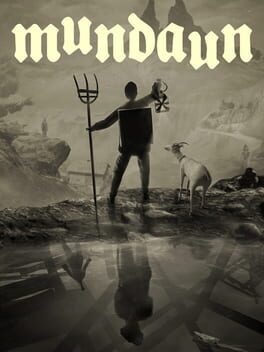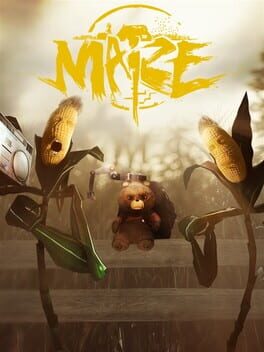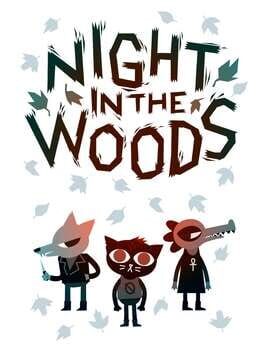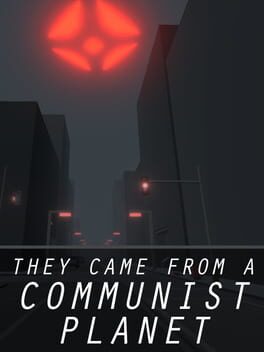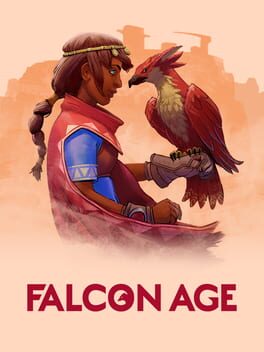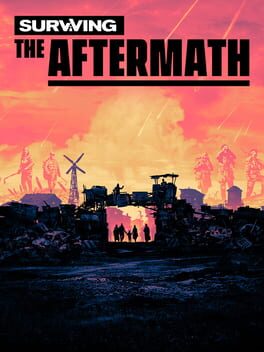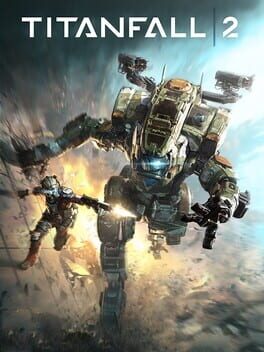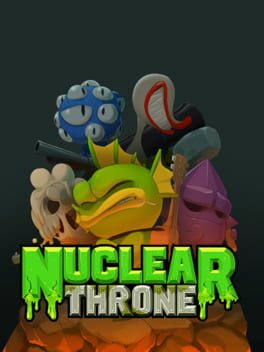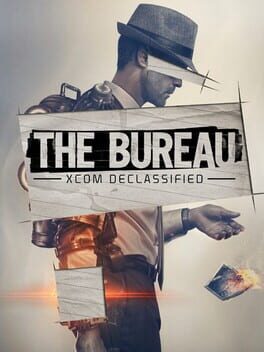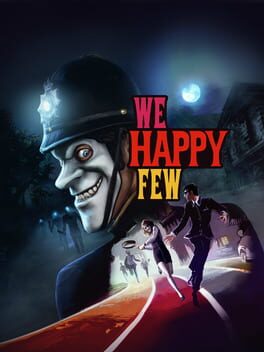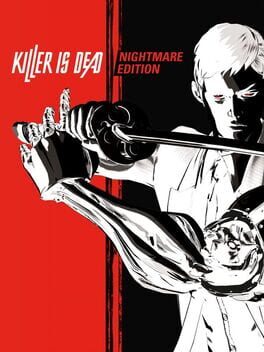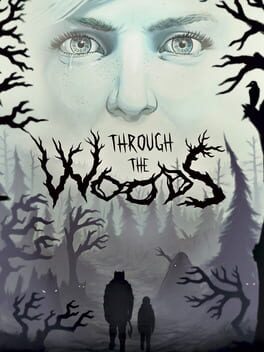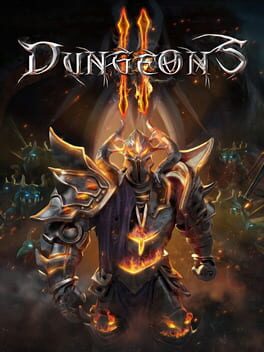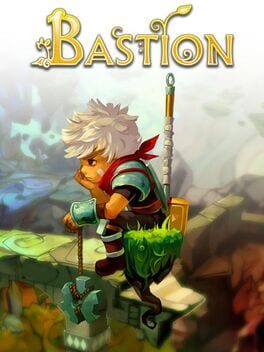astarrgames
2021
Usually when I talk to others who have played this game, we come to the conclusion that it's "an adventure game with horror in it" and that horror is typically a deep sense of dread. That dread is well written in to the story of the game, in which I feared for the town, the people and myself while uncovering the mysteries within Mundaun. I could always feel like worse and worse things would happen in this world, and that there could not be a resolution.
The art style is the immediate selling point of this game, although everything else about it is fantastic. I thought the black-and-white / sepia tones would be boring or ugly to look at for hours, but it is both unique and has been beautifully used throughout lands. There is a distinction between regions you enter and the skybox is typically always visible and gorgeous.
Beyond the artistic choice, what gives this game outstanding visual style is how that the way the player is drawn to environmental scripted moments. There are things that happen throughout the game that you could miss if you weren't watching, and I almost did, but there is a particular way these moments pop out of the background, or the players focus gets pulled to them. I don't know how to explain it, but when these moments happen it is startling and mesmerizing!
Mechanically, the game is a simple adventure, with an appropriate amount of verbs and interactions the player can make. It leans minimally on a survival-horror genre, with limited supplies to use against enemies, but doesn't rely entirely on them. I ended up exploring as much as I could, not because of collecting but because I was craving more storytelling.
This game is also really fun! I enjoyed driving around, meeting new people and walking around the world. I'm not big into adventure game puzzles as I can find them either too easy and boring or too difficult and frustrating. Mundaun found a happy-medium, where every next objective was explained when necessary. If I found something I could interact with and didn't understand, I would eventually be told how I could use it when needed. I didn't end up backtracking a lot to figure out if I forgot or missed something, it wasn't much and did not feel like a chore, as the vehicle is fun, the land is nice to look at, and the creepiness of some environments is pleasant to pass through.
Mundaun is a wonderful game, and after beating it, wanted to revisit for another possible ending - or just to be in this world again, find the secrets I may have missed and be amazed by the visual moments I may have forgotten about. I can't recommend this game enough.
The art style is the immediate selling point of this game, although everything else about it is fantastic. I thought the black-and-white / sepia tones would be boring or ugly to look at for hours, but it is both unique and has been beautifully used throughout lands. There is a distinction between regions you enter and the skybox is typically always visible and gorgeous.
Beyond the artistic choice, what gives this game outstanding visual style is how that the way the player is drawn to environmental scripted moments. There are things that happen throughout the game that you could miss if you weren't watching, and I almost did, but there is a particular way these moments pop out of the background, or the players focus gets pulled to them. I don't know how to explain it, but when these moments happen it is startling and mesmerizing!
Mechanically, the game is a simple adventure, with an appropriate amount of verbs and interactions the player can make. It leans minimally on a survival-horror genre, with limited supplies to use against enemies, but doesn't rely entirely on them. I ended up exploring as much as I could, not because of collecting but because I was craving more storytelling.
This game is also really fun! I enjoyed driving around, meeting new people and walking around the world. I'm not big into adventure game puzzles as I can find them either too easy and boring or too difficult and frustrating. Mundaun found a happy-medium, where every next objective was explained when necessary. If I found something I could interact with and didn't understand, I would eventually be told how I could use it when needed. I didn't end up backtracking a lot to figure out if I forgot or missed something, it wasn't much and did not feel like a chore, as the vehicle is fun, the land is nice to look at, and the creepiness of some environments is pleasant to pass through.
Mundaun is a wonderful game, and after beating it, wanted to revisit for another possible ending - or just to be in this world again, find the secrets I may have missed and be amazed by the visual moments I may have forgotten about. I can't recommend this game enough.
2019
What stands out most is the writing and RPG mechanics.
There's a lot of reading and complimentary voice acting to introduce characters or scripted segments. The writing describes the fantasy world in Disco Elysium, the characters you talk to, and a lot of dialogue. I think this is why there were some negative reviews of DE, so know what you're signing up for. The game is conversations and dice-rolling to determine if you're achieving an action or dialogue option, then walking to another area to do the same with an invisible timer.
The fantasy world of DE is fantasy. There are some parallels to our real world geopolitically and there is some conversation between the two worlds definitely, but they're not all direct. Non-spoiler example is the reference to a political philosopher in the world of DE, Kras Mazov, who is almost a direct reference to Karl Marx. However these are not always direct references or placeholders and stand-ins our world and it shouldn't be read as such. So, DE can be accessible without knowledge of our own social or political histories here on Earth, which is a benefit for a non-history buff who wants to play a detective RPG. The story and the world feel complete and lived in, which also makes me excited for more stories in the Disco Elysium universe.
The characters are defined as such that you can fit the role of someone who admires or detests them, as well as the player's feelings towards them. You'll talk to people a lot, and that is the game, and where the writing is forefront. You can learn about your character and play their role, with just a little continuity errors - as events happen or you take on a persona, so do the conversations. It's the first option, but I really recommend Encyclopedia as a first character so you learn more about the world as you discover your character.
The gameplay is a bit of running around, figuring out places to go, more people to talk to, trying to resolve an issue, hitting a wall, gaining experience and trying again. It is almost a "bottle episode" where you're on the same coastline town between a few buildings for the entirety of the game, but there is so much happening, with many subplots and metaphorical (and actual) doors opening that every day or level-up you gain will feel like a new place. When the story resolves, it's absolutely possible to replay the game and discover or complete quests you didn't have access to, play in the new Hardcore Mode, and role play as an absolutely different person.
The artwork is a watercolour expressionist that is beautiful to look at, which you'll be looking at a lot of the same landscape. Watch a bit to see if you like and understand what you're looking at. There's also a helpful highlights over objects and people can be interacted with, and some animated sequences to add variation to the flow of the game. There is minor tearing when zooming out or changing animations, which is barely noticeable and doesn't impact the gameplay. The music is also very well done to be both interesting and ambient, so that the loop doesn't become annoying or frustrating. You feel when you're in a dance-y or lounge-y spot, or you feel like you're on coastline because of the ambience sounds.
I really felt DE was an emotional roller coaster with humorous bits deriving from situations or dialogue, frustrating because you're dealing with someone or something you want to respond to outside of your role, sad because of how awful and sad everyone and the world can be, and satisfying when you start to check-off in-game goals. I'm not very experienced in detective games and plan on diving into them now after playing through DE, so I'm not sure if this is an introductory game in the genre, but as a stand-alone game it is absolutely worth the play through.
There's a lot of reading and complimentary voice acting to introduce characters or scripted segments. The writing describes the fantasy world in Disco Elysium, the characters you talk to, and a lot of dialogue. I think this is why there were some negative reviews of DE, so know what you're signing up for. The game is conversations and dice-rolling to determine if you're achieving an action or dialogue option, then walking to another area to do the same with an invisible timer.
The fantasy world of DE is fantasy. There are some parallels to our real world geopolitically and there is some conversation between the two worlds definitely, but they're not all direct. Non-spoiler example is the reference to a political philosopher in the world of DE, Kras Mazov, who is almost a direct reference to Karl Marx. However these are not always direct references or placeholders and stand-ins our world and it shouldn't be read as such. So, DE can be accessible without knowledge of our own social or political histories here on Earth, which is a benefit for a non-history buff who wants to play a detective RPG. The story and the world feel complete and lived in, which also makes me excited for more stories in the Disco Elysium universe.
The characters are defined as such that you can fit the role of someone who admires or detests them, as well as the player's feelings towards them. You'll talk to people a lot, and that is the game, and where the writing is forefront. You can learn about your character and play their role, with just a little continuity errors - as events happen or you take on a persona, so do the conversations. It's the first option, but I really recommend Encyclopedia as a first character so you learn more about the world as you discover your character.
The gameplay is a bit of running around, figuring out places to go, more people to talk to, trying to resolve an issue, hitting a wall, gaining experience and trying again. It is almost a "bottle episode" where you're on the same coastline town between a few buildings for the entirety of the game, but there is so much happening, with many subplots and metaphorical (and actual) doors opening that every day or level-up you gain will feel like a new place. When the story resolves, it's absolutely possible to replay the game and discover or complete quests you didn't have access to, play in the new Hardcore Mode, and role play as an absolutely different person.
The artwork is a watercolour expressionist that is beautiful to look at, which you'll be looking at a lot of the same landscape. Watch a bit to see if you like and understand what you're looking at. There's also a helpful highlights over objects and people can be interacted with, and some animated sequences to add variation to the flow of the game. There is minor tearing when zooming out or changing animations, which is barely noticeable and doesn't impact the gameplay. The music is also very well done to be both interesting and ambient, so that the loop doesn't become annoying or frustrating. You feel when you're in a dance-y or lounge-y spot, or you feel like you're on coastline because of the ambience sounds.
I really felt DE was an emotional roller coaster with humorous bits deriving from situations or dialogue, frustrating because you're dealing with someone or something you want to respond to outside of your role, sad because of how awful and sad everyone and the world can be, and satisfying when you start to check-off in-game goals. I'm not very experienced in detective games and plan on diving into them now after playing through DE, so I'm not sure if this is an introductory game in the genre, but as a stand-alone game it is absolutely worth the play through.
2016
This review contains spoilers
I was enjoying Maize, and I wanted to keep enjoying Maize. After 2 hours, I had to give it up.
I went into Maize not knowing what to expect. It almost looked like a horror game, and I was just waiting for something bad to happen. The music is pleasant ambience with some eeriness to it, and the setting is cryptic. Pretty soon, the jokes started to hit, and that's what this game is about. It's a linear adventure in the vein of 90's point-and-click adventure games, where everything you can actually interact with is highlighted, and serves an eventual purpose.
The game itself is a very pretty vehicle for delivering this story and humour, which had been great! For 2 hours. There's great comedy about the meta-game of the genre you're playing in, and there's definitely funny punchlines to putting together puzzles and what the outcome is.
There's a lot of great surrealist humour, even in the situation itself, that is reminiscent of the greats like Monty Python or Kids in the Hall. You're in a weird predicament, doing odd things, with strange material left behind from other humans, and everyone just seems to deal with it.
Humour is of course subjective to anyone who experiences it, and I'd like to explain why the fun suddenly stopped for me beyond bad jokes.
I was having fun with the game, until I felt like I spent way too long in an underground labyrinth of sewer-like walls, or white walls, surrounded by junk. A good joke is that the same type of room was planted into this laboratory, but as a player, it was repetitive and frustrating. I was actually getting motion sickness I don't experience often with first-person perspective. In this case it was because I was running through an environment, swinging around hallways, and disorienting myself trying to remember where my last objective was.
[b]Spoilers.[/b] The second one was the jokes stopped being funny. An hour in, I met [spoiler]the teddy bear and started to read through notes left by the scientist and his venture capitalist business partner.[/spoiler] They were each funny at first, from the situations each of them provided, having a [spoiler]Russian teddy bear follow you around, and the venture capitalist think they're building a theme park out of a scientific experimentation centre.[/spoiler]
This is right when the game pivots to meta-gameplay jokes, funny situations, and absurdist comedy to insult humour. Sure, [spoiler]the lab you're stuck in is so poorly designed and the venture capitalist keeps screwing everything up,[/spoiler] but [i]every single joke[/i] boils down to calling the NPCs you don't see and the player-character "stupid," "idiot," "moron" and whatever else to demean their intelligence. It was funny for the first couple of minutes, but that was the running joke - everyone's a stupid idiot, and that's all I hear.
After a full hour of being called a stupid idiot for the hundredth time in a game designed to make me pick up a unicorn-shaped candle, I gave up. I'll just read the ending, which I'm sure will be a bit of a giggle, but I'm not enduring the boring maze and insult comedy anymore. Like, Triumph the Insult Comic Dog is funny in 2-5 minute segments, but this becomes insufferable after an hour.
That all written, I do believe the team does have talent and wits that given another scenario would work. I look forward to Skully and would check that out!
I went into Maize not knowing what to expect. It almost looked like a horror game, and I was just waiting for something bad to happen. The music is pleasant ambience with some eeriness to it, and the setting is cryptic. Pretty soon, the jokes started to hit, and that's what this game is about. It's a linear adventure in the vein of 90's point-and-click adventure games, where everything you can actually interact with is highlighted, and serves an eventual purpose.
The game itself is a very pretty vehicle for delivering this story and humour, which had been great! For 2 hours. There's great comedy about the meta-game of the genre you're playing in, and there's definitely funny punchlines to putting together puzzles and what the outcome is.
There's a lot of great surrealist humour, even in the situation itself, that is reminiscent of the greats like Monty Python or Kids in the Hall. You're in a weird predicament, doing odd things, with strange material left behind from other humans, and everyone just seems to deal with it.
Humour is of course subjective to anyone who experiences it, and I'd like to explain why the fun suddenly stopped for me beyond bad jokes.
I was having fun with the game, until I felt like I spent way too long in an underground labyrinth of sewer-like walls, or white walls, surrounded by junk. A good joke is that the same type of room was planted into this laboratory, but as a player, it was repetitive and frustrating. I was actually getting motion sickness I don't experience often with first-person perspective. In this case it was because I was running through an environment, swinging around hallways, and disorienting myself trying to remember where my last objective was.
[b]Spoilers.[/b] The second one was the jokes stopped being funny. An hour in, I met [spoiler]the teddy bear and started to read through notes left by the scientist and his venture capitalist business partner.[/spoiler] They were each funny at first, from the situations each of them provided, having a [spoiler]Russian teddy bear follow you around, and the venture capitalist think they're building a theme park out of a scientific experimentation centre.[/spoiler]
This is right when the game pivots to meta-gameplay jokes, funny situations, and absurdist comedy to insult humour. Sure, [spoiler]the lab you're stuck in is so poorly designed and the venture capitalist keeps screwing everything up,[/spoiler] but [i]every single joke[/i] boils down to calling the NPCs you don't see and the player-character "stupid," "idiot," "moron" and whatever else to demean their intelligence. It was funny for the first couple of minutes, but that was the running joke - everyone's a stupid idiot, and that's all I hear.
After a full hour of being called a stupid idiot for the hundredth time in a game designed to make me pick up a unicorn-shaped candle, I gave up. I'll just read the ending, which I'm sure will be a bit of a giggle, but I'm not enduring the boring maze and insult comedy anymore. Like, Triumph the Insult Comic Dog is funny in 2-5 minute segments, but this becomes insufferable after an hour.
That all written, I do believe the team does have talent and wits that given another scenario would work. I look forward to Skully and would check that out!
2017
2019
This game has great discourse! It also has very cute and unique mechanics.
However, it's limited. It feels like an introductory game to something that could have been larger. It also has a lot of jankyness that sometimes impacts the mechanics.
Overall, Falcon Age is a very good and impressive game, but I'm mostly impressed by the writing and how deep it goes into explaining colonialist and resistance.
However, it's limited. It feels like an introductory game to something that could have been larger. It also has a lot of jankyness that sometimes impacts the mechanics.
Overall, Falcon Age is a very good and impressive game, but I'm mostly impressed by the writing and how deep it goes into explaining colonialist and resistance.
I played probably way too long through a campaign of this game, but I don't think it's my fault.
Surviving the Aftermath is a great game as a city-builder and colony management simulator that pulls a lot from Frostpunk and to a lesser extent, games in The Settlers series. However, there's a 4X layer that could potentially be a good and interesting dynamic, is boring and frustrating for the most part.
The towns you can build have decent logistics and offer multiple paths to production, which is always nice to see as opposed to linear ones. For example, clothing requires some kind of fibre, however those fibre sources can be animal or plant farmed from different sources. It allows for diversity of play style within a single campaign.
Scientific unlocks, especially for buildings, are a relief when achieved. They give the player an advantage in the push-and-pull struggle of building upon a toxic landscape.
There are some hidden mechanics of the colony sim that I didn't understand. For example: outside of narrated events that include disease outbreaks, the colonists would suffer from them. I didn't understand why, and the game's community didn't either, as they offered suggestions of "maybe don't put buildings so close together." This confusion is further exasperated when watching colonists develop their own pathing, sometimes through hazards, or sometimes far away from their work sites, home and entertainment.
Scrolling through the UI to get specific information is also a frustration. Some important information is hidden under layers and layers of menus, then disappearing when engaging in the map. Re-opening menus doesn't pick up where you left off and the job/home views are unclickable, leaving management tasks such as finding out where people are unhappy in the colony nearly impossible. Even games like Tropico have made the UI in these types of city-builders easily accessible and useful for micromanaging a population.
The different stories that pop up can be categorized into decisions that give resources or buffs. The ones that aren't part of the mainline story are often repeated, which is unfortunate - but it could have been how long I spent with the game.
That leads to my biggest complaint of this game: the 4X layer. There's a map you can send specialized colonists throughout, and there's a lot going on in there. It's how the colonies can consistently grow, the only way to gather certain resources, or participate in the actual story of the game. I didn't realize the latter, so I put off story missions until I was comfortable with my city being built.
Then that lead into the back-half of the game being a long drag until the game completed itself, which is a common complaint. If I had of known I would be waiting on automated resource-gathering outside of direct gameplay for the last 10-15 hours, I would have engaged with the 4X layer more frequently.
Those complaints aside, this is a fun city-builder that I may engage with again if the DLC add more interesting stories, mechanics, buildings and other aspects to an otherwise fine game.
Surviving the Aftermath is a great game as a city-builder and colony management simulator that pulls a lot from Frostpunk and to a lesser extent, games in The Settlers series. However, there's a 4X layer that could potentially be a good and interesting dynamic, is boring and frustrating for the most part.
The towns you can build have decent logistics and offer multiple paths to production, which is always nice to see as opposed to linear ones. For example, clothing requires some kind of fibre, however those fibre sources can be animal or plant farmed from different sources. It allows for diversity of play style within a single campaign.
Scientific unlocks, especially for buildings, are a relief when achieved. They give the player an advantage in the push-and-pull struggle of building upon a toxic landscape.
There are some hidden mechanics of the colony sim that I didn't understand. For example: outside of narrated events that include disease outbreaks, the colonists would suffer from them. I didn't understand why, and the game's community didn't either, as they offered suggestions of "maybe don't put buildings so close together." This confusion is further exasperated when watching colonists develop their own pathing, sometimes through hazards, or sometimes far away from their work sites, home and entertainment.
Scrolling through the UI to get specific information is also a frustration. Some important information is hidden under layers and layers of menus, then disappearing when engaging in the map. Re-opening menus doesn't pick up where you left off and the job/home views are unclickable, leaving management tasks such as finding out where people are unhappy in the colony nearly impossible. Even games like Tropico have made the UI in these types of city-builders easily accessible and useful for micromanaging a population.
The different stories that pop up can be categorized into decisions that give resources or buffs. The ones that aren't part of the mainline story are often repeated, which is unfortunate - but it could have been how long I spent with the game.
That leads to my biggest complaint of this game: the 4X layer. There's a map you can send specialized colonists throughout, and there's a lot going on in there. It's how the colonies can consistently grow, the only way to gather certain resources, or participate in the actual story of the game. I didn't realize the latter, so I put off story missions until I was comfortable with my city being built.
Then that lead into the back-half of the game being a long drag until the game completed itself, which is a common complaint. If I had of known I would be waiting on automated resource-gathering outside of direct gameplay for the last 10-15 hours, I would have engaged with the 4X layer more frequently.
Those complaints aside, this is a fun city-builder that I may engage with again if the DLC add more interesting stories, mechanics, buildings and other aspects to an otherwise fine game.
2016
This is a gem.
It has one of the few single-player campaigns for first person shooters that are so perfectly executed. There's so much going on in this game to highlight how well it fits into this package.
This game almost feels like a bunch of experiments gone absolutely right. The FPS combat is in two modes that feel very new and refreshing for the genre. On-the-ground combat goes beyond military shooters and puts in wall-running for both puzzles and combat. The mech combat, although not like a simulator, feels great with such diversity of weapons and abilities - they also nail how stompy and bulky riding a large robot can feel.
The level design also adds to that feeling that they're experimenting with what they can make. It's almost as if a group of different teams looked at these mechanics and took a bizzare chance to craft interesting and very exciting scenarios. No setting is overdone, but every time I'm given a unique ability or item, I am craving more of it. I want to go back and replay every single mission.
I didn't expect much from the story, as it feels like another "underdog soldier caught behind enemy lines" story. However, all the characters have a certain charm that can make you love them or love to hate them. The quips and situations between the mech and soldier are so perfectly done, I laughed out loud and did feel sympathy within this short time for them.
The world itself seems lived in, and this 5 hour campaign really makes you feel as a simple part of it. I thought I was getting into something with a lot of boring lore - or a military conflict I don't care much about. I did begin to feel like a hero of a single story among many stories that can exist here, which makes me want to come back and revisit it.
Playing through the campaign really brought me back to the first time I played through Half-Life, or Metro. They nail a FPS campaign and heighten the experience. This is also a brilliant precursor to Apex Legends, and I will be very excited for anything Respawn puts out in this world.
It has one of the few single-player campaigns for first person shooters that are so perfectly executed. There's so much going on in this game to highlight how well it fits into this package.
This game almost feels like a bunch of experiments gone absolutely right. The FPS combat is in two modes that feel very new and refreshing for the genre. On-the-ground combat goes beyond military shooters and puts in wall-running for both puzzles and combat. The mech combat, although not like a simulator, feels great with such diversity of weapons and abilities - they also nail how stompy and bulky riding a large robot can feel.
The level design also adds to that feeling that they're experimenting with what they can make. It's almost as if a group of different teams looked at these mechanics and took a bizzare chance to craft interesting and very exciting scenarios. No setting is overdone, but every time I'm given a unique ability or item, I am craving more of it. I want to go back and replay every single mission.
I didn't expect much from the story, as it feels like another "underdog soldier caught behind enemy lines" story. However, all the characters have a certain charm that can make you love them or love to hate them. The quips and situations between the mech and soldier are so perfectly done, I laughed out loud and did feel sympathy within this short time for them.
The world itself seems lived in, and this 5 hour campaign really makes you feel as a simple part of it. I thought I was getting into something with a lot of boring lore - or a military conflict I don't care much about. I did begin to feel like a hero of a single story among many stories that can exist here, which makes me want to come back and revisit it.
Playing through the campaign really brought me back to the first time I played through Half-Life, or Metro. They nail a FPS campaign and heighten the experience. This is also a brilliant precursor to Apex Legends, and I will be very excited for anything Respawn puts out in this world.
2015
It took me 18 hours before I got my butt on the throne, but every run was fun and worth it.
For its pixel art, it's pretty and it's capable of expressing the wonder and grossness of this world. The music rocks and moves with the energy of the game; guitars are blasting while you're blasting and mellows when the carnage is over.
It's pretty darn difficult and even the slightest misstep is punished immediately in the game. There's a learning curve to understanding the environments, enemies and weapons as they're introduced to the player, without much explanation. Sometimes, I'd fire a gun at a wall just to see what it actually does, or carefully approach an inanimate object in a new land just in case it causes damage. There's not much explained to the player, so they have to try to learn from their failures - or get a definitive answer through a wiki.
However, every run is incredibly smooth to get in to. After a death, I curse my mistake, think "that wasn't fair!", correct myself (it was fair), then immediately hit re-try and I'm back in the action. The repetition is diffused by the randomly generated levels, vast array of weapons, and secrets to find throughout each run. Sometimes I find myself craving another try for the throne, which is convenient because of how quick this game streamlines getting into the fun of it all.
For its pixel art, it's pretty and it's capable of expressing the wonder and grossness of this world. The music rocks and moves with the energy of the game; guitars are blasting while you're blasting and mellows when the carnage is over.
It's pretty darn difficult and even the slightest misstep is punished immediately in the game. There's a learning curve to understanding the environments, enemies and weapons as they're introduced to the player, without much explanation. Sometimes, I'd fire a gun at a wall just to see what it actually does, or carefully approach an inanimate object in a new land just in case it causes damage. There's not much explained to the player, so they have to try to learn from their failures - or get a definitive answer through a wiki.
However, every run is incredibly smooth to get in to. After a death, I curse my mistake, think "that wasn't fair!", correct myself (it was fair), then immediately hit re-try and I'm back in the action. The repetition is diffused by the randomly generated levels, vast array of weapons, and secrets to find throughout each run. Sometimes I find myself craving another try for the throne, which is convenient because of how quick this game streamlines getting into the fun of it all.
It's a third-person X-Com game in real-time. It's not bad, but I'm sure there's better in the series and in the genre.
I've played the original X-Com games in dos when they came out - except everything after apocalypse. This feels like the new X-Com: Enemy Unknown but in real-time, and commanding a small squad from the ground.
I enjoyed the 1960's atmosphere, and found some scenerios creepy and had a lot of fun with it. It feels like a breeze to get through so far, and too linear to come back and replay - unlike the original X-Coms and the newer ones. Action sequences are also too infrequent for what I like, and there's rarely any aliens outside of staged shoot-outs. I was never expecting one to jump out, or be caught in a room with a couple of them.
I haven't played enough third-person shooters, but I found this one lacking - especially around commands and weapons. ex. I can't tell my squad to take cover and protect themselves, and the weapons are the same series of pistol, rifle, shotgun, sniper rifle, rocket launcher but with different technologies.
My only other complaint is that I felt that running to and out of cover felt sticky (I take cover everywhere), not sticky enough (I need cover but can't get down), and delayed interactions with cover - like rolling or running out. I'm using a keyboard and mouse and heard that gamepads feel better to use.
I think those complaints are too minor to pass up this. It really feels like you're taking a small squad from Enemy Unknown and playing out their combat during the 1960's. Your fights depend on your skill, creativity, how well your command your squad, and your attention to the battlefield. The storyline is interesting, and I'm glad there's options in your interactions - although I don't know how it affects gameplay or the story.
I've played the original X-Com games in dos when they came out - except everything after apocalypse. This feels like the new X-Com: Enemy Unknown but in real-time, and commanding a small squad from the ground.
I enjoyed the 1960's atmosphere, and found some scenerios creepy and had a lot of fun with it. It feels like a breeze to get through so far, and too linear to come back and replay - unlike the original X-Coms and the newer ones. Action sequences are also too infrequent for what I like, and there's rarely any aliens outside of staged shoot-outs. I was never expecting one to jump out, or be caught in a room with a couple of them.
I haven't played enough third-person shooters, but I found this one lacking - especially around commands and weapons. ex. I can't tell my squad to take cover and protect themselves, and the weapons are the same series of pistol, rifle, shotgun, sniper rifle, rocket launcher but with different technologies.
My only other complaint is that I felt that running to and out of cover felt sticky (I take cover everywhere), not sticky enough (I need cover but can't get down), and delayed interactions with cover - like rolling or running out. I'm using a keyboard and mouse and heard that gamepads feel better to use.
I think those complaints are too minor to pass up this. It really feels like you're taking a small squad from Enemy Unknown and playing out their combat during the 1960's. Your fights depend on your skill, creativity, how well your command your squad, and your attention to the battlefield. The storyline is interesting, and I'm glad there's options in your interactions - although I don't know how it affects gameplay or the story.
2016
I really thought I would enjoy this game.
From the opening this has an interesting story, albeit pulled right from 1984 with hints of Brave New World. To have those worlds of dystopian fiction become an interactive video game is exciting! The combat is very impressive and has a great balance of defense and offense in it. The look and feel of this game reminds me of Bioshock, and I was here for it.
However, it's not just marred by some pretty excessive bugs but also some design choices.
I absolutely get the idea of the public disguise: wear the "right" clothes for the neighbourhood you're in, walk don't run, take your Joy drugs, and try to fit in. Otherwise, people become suspicious and will turn on you, alerting the nearby police. It's Foucault's panopticon, but in a video game!
Except fitting in with the public spaces of cities are absolutely infuriating and disappointing. There's limited character and building models, so you'll be walking past the same few people and shops constantly, which is absolutely boring. Your dialogue with NPCs is funny and neat, but very limited and repetitive. You'll be walking past people floating a meter above a bench, breaking the immersion and showing off one of the many bugs in the game. Then you'll suddenly trip on an invisible object, jump, and trigger the NPC aggro - which does not stop or slow down.
There's also crafting in this game, which can be amazing or frustrating depending on how its implemented. For a very slow, boring and repetitive game, the looting and crafting simply slows the game down more. I have to do inventory management constantly, as weapons break down and I need parts for new ones, and I'm carrying too much weight from all of the trash cans I looted from. I understand how a player's digital hoarding can impact gameplay - I play MMORPGs - but it is designed in a way where I am encouraged to loot in order to find interesting story beats, find crafting materials to prepare for a mission or to actually progress through a mission. I'm constantly returning to safehouses to put my loot away, craft replacement gear and consider what to take on the next mission while not encumbering myself.
Then, there is so much walking that it should have a tag for a walking simulator. I'm walking from safehouses where I dropped off my loot to the mission, then that mission directs me to walk to another area very far away. The walking isn't interesting, as I wrote earlier - everything looks the same, the level designs are incredibly boring and there's not enough variety to assets. You can't even run to get to where you want to be or else you'll trigger the NPC aggro into a forever loop of being chased and defending yourself from a hoarde. I couldn't finish the first chapter, as I ended up replaying the same missions that didn't save properly due to bugs and became too bored and irritated to continue playing.
There's also some UI choices that were disappointing. As an example, you pick up music in this game that you can't listen to without being in the menu screen. I want this music around me in the game to make it a little bit more interesting!
What kept me going was the story and dialogue and humour thrown into this game, with some exceptions. It is a very interesting story, and I'm very curious how they connect governmental misinformation campaigns and the forced drugging of a population with political resistance beyond individualism. Except, I'm playing as one of the worst characters on the side of the opposition, who's snarky criticism just shows how terrible their own personality and attitudes are.
I may give it another shot, because I am curious about the story's ending and I did hear other playable characters are more interesting than this first one.
From the opening this has an interesting story, albeit pulled right from 1984 with hints of Brave New World. To have those worlds of dystopian fiction become an interactive video game is exciting! The combat is very impressive and has a great balance of defense and offense in it. The look and feel of this game reminds me of Bioshock, and I was here for it.
However, it's not just marred by some pretty excessive bugs but also some design choices.
I absolutely get the idea of the public disguise: wear the "right" clothes for the neighbourhood you're in, walk don't run, take your Joy drugs, and try to fit in. Otherwise, people become suspicious and will turn on you, alerting the nearby police. It's Foucault's panopticon, but in a video game!
Except fitting in with the public spaces of cities are absolutely infuriating and disappointing. There's limited character and building models, so you'll be walking past the same few people and shops constantly, which is absolutely boring. Your dialogue with NPCs is funny and neat, but very limited and repetitive. You'll be walking past people floating a meter above a bench, breaking the immersion and showing off one of the many bugs in the game. Then you'll suddenly trip on an invisible object, jump, and trigger the NPC aggro - which does not stop or slow down.
There's also crafting in this game, which can be amazing or frustrating depending on how its implemented. For a very slow, boring and repetitive game, the looting and crafting simply slows the game down more. I have to do inventory management constantly, as weapons break down and I need parts for new ones, and I'm carrying too much weight from all of the trash cans I looted from. I understand how a player's digital hoarding can impact gameplay - I play MMORPGs - but it is designed in a way where I am encouraged to loot in order to find interesting story beats, find crafting materials to prepare for a mission or to actually progress through a mission. I'm constantly returning to safehouses to put my loot away, craft replacement gear and consider what to take on the next mission while not encumbering myself.
Then, there is so much walking that it should have a tag for a walking simulator. I'm walking from safehouses where I dropped off my loot to the mission, then that mission directs me to walk to another area very far away. The walking isn't interesting, as I wrote earlier - everything looks the same, the level designs are incredibly boring and there's not enough variety to assets. You can't even run to get to where you want to be or else you'll trigger the NPC aggro into a forever loop of being chased and defending yourself from a hoarde. I couldn't finish the first chapter, as I ended up replaying the same missions that didn't save properly due to bugs and became too bored and irritated to continue playing.
There's also some UI choices that were disappointing. As an example, you pick up music in this game that you can't listen to without being in the menu screen. I want this music around me in the game to make it a little bit more interesting!
What kept me going was the story and dialogue and humour thrown into this game, with some exceptions. It is a very interesting story, and I'm very curious how they connect governmental misinformation campaigns and the forced drugging of a population with political resistance beyond individualism. Except, I'm playing as one of the worst characters on the side of the opposition, who's snarky criticism just shows how terrible their own personality and attitudes are.
I may give it another shot, because I am curious about the story's ending and I did hear other playable characters are more interesting than this first one.
2016
This review contains spoilers
Played and written October 30, 2020:
I played and finished this on stream for spooooooky October and had conflicting feelings about it.
I'm playing with English audio, which may have an impact. Overall, I found the environment and monsters great and scary! However, I have huge problems with the story and characters.
I didn't know what to expect going into this, and was really creeped out as the sun sank going through what seemed like an abandoned village. There was good suspense building up to the encounters, and meeting the creatures had been creepy but intriguing. It looks beautiful, the skyline and how it changes throughout the story is impactful, and the sound design really fit well with the environment and added to the eeriness of the world.
The game is a little clunky and stiff, as walking over rocks or other objects really impacts the character's position in camera and the camera perspective. I also believe I had an encounter that was bugged, where I believe a monster was supposed to kill me but I walked through them a bunch of times - there's an achievement to die from them from what I gathered.
After a while, the protagonist became frustrating. There are audio lines that sound and feel unrealistic considering what I've experienced already in the storyline. For example, I don't know if playing with English audio had an impact on the poor quality voice acting or the rhythm of dialogue, but I felt like a few things were delayed or did not make contextual sense.
While that stuff I could laugh off and still be convinced I was in a horrifying world, there are politics in this. The protagonist's backstory is brought up at the climax, which unfortunately reinforces my dislike of the character I'm playing. Her story is
There are a lot of problems to unpack with this climatic story line. I gave the benefit of a doubt to the writers and looked up local Norway statistics and analysis of this, but this narrative has the same problems if it were written in North America. While I can absolutely remove this game from reality and our real lives, there is an huge problem with telling fictitious stories that involve real life social issues and use myths raised by Edit: Also, how did I forget that every time
There are ways to talk about these tropes, but how it was handled here really turned me off of the game. This plot line reminded me so much of The Room I think I exclaimed it out loud on stream and just pushed to finish it. It's also what tipped me off to not recommend this, otherwise I would have felt this was a fine scare for a little bit with some clunkiness.
I played and finished this on stream for spooooooky October and had conflicting feelings about it.
I'm playing with English audio, which may have an impact. Overall, I found the environment and monsters great and scary! However, I have huge problems with the story and characters.
I didn't know what to expect going into this, and was really creeped out as the sun sank going through what seemed like an abandoned village. There was good suspense building up to the encounters, and meeting the creatures had been creepy but intriguing. It looks beautiful, the skyline and how it changes throughout the story is impactful, and the sound design really fit well with the environment and added to the eeriness of the world.
The game is a little clunky and stiff, as walking over rocks or other objects really impacts the character's position in camera and the camera perspective. I also believe I had an encounter that was bugged, where I believe a monster was supposed to kill me but I walked through them a bunch of times - there's an achievement to die from them from what I gathered.
After a while, the protagonist became frustrating. There are audio lines that sound and feel unrealistic considering what I've experienced already in the storyline. For example, I don't know if playing with English audio had an impact on the poor quality voice acting or the rhythm of dialogue, but I felt like a few things were delayed or did not make contextual sense.
While that stuff I could laugh off and still be convinced I was in a horrifying world, there are politics in this. The protagonist's backstory is brought up at the climax, which unfortunately reinforces my dislike of the character I'm playing. Her story is
There are a lot of problems to unpack with this climatic story line. I gave the benefit of a doubt to the writers and looked up local Norway statistics and analysis of this, but this narrative has the same problems if it were written in North America. While I can absolutely remove this game from reality and our real lives, there is an huge problem with telling fictitious stories that involve real life social issues and use myths raised by Edit: Also, how did I forget that every time
There are ways to talk about these tropes, but how it was handled here really turned me off of the game. This plot line reminded me so much of The Room I think I exclaimed it out loud on stream and just pushed to finish it. It's also what tipped me off to not recommend this, otherwise I would have felt this was a fine scare for a little bit with some clunkiness.
2015
Yep. This is the spiritual successor of Dungeon Keeper, and if they continued the franchise this is what the third installment would look like. Although there are significant differences between the two, while this one feels expansive and limited in direct comparison.
For anyone not familiar with Dungeon Keeper, Dungeons allows you to have an almost-absolute control over an underground base while full control over surface battles outside of your base. You are able to control 2 different factions of dungeon builders (3 in skirmish mode) who come with their own kinds of rooms and half-dozen different kinds of units.
It feels like a tower defense game (unlike Dungeon Keeper) because there are regular raids on your dungeon, forcing you to create defenses. However, you can't progress your unit's levels or builds without going out of your dungeon to explore and destroy your above-ground enemies.
One thing I didn't like about the campaign was that it feels a lot like a very closely guided tutorial until the last couple of missions. It would have been nice to learn in one map, then have freedom to explore and come up with unique ways to fight your enemies.
The world and narration is fun and entertaining, however I had to reduce how often the narrator heckled me or made meta-game comments. The combat and spells you can use against your enemies really feels good when you are levelled up, because of how each unit can progress through different skill lines and compliment each other.
It's great if you like strategy games with very short learning curves and playing-as-the-enemy aesthetics. If you loved Dungeon Keeper like I did, this is a must.
For anyone not familiar with Dungeon Keeper, Dungeons allows you to have an almost-absolute control over an underground base while full control over surface battles outside of your base. You are able to control 2 different factions of dungeon builders (3 in skirmish mode) who come with their own kinds of rooms and half-dozen different kinds of units.
It feels like a tower defense game (unlike Dungeon Keeper) because there are regular raids on your dungeon, forcing you to create defenses. However, you can't progress your unit's levels or builds without going out of your dungeon to explore and destroy your above-ground enemies.
One thing I didn't like about the campaign was that it feels a lot like a very closely guided tutorial until the last couple of missions. It would have been nice to learn in one map, then have freedom to explore and come up with unique ways to fight your enemies.
The world and narration is fun and entertaining, however I had to reduce how often the narrator heckled me or made meta-game comments. The combat and spells you can use against your enemies really feels good when you are levelled up, because of how each unit can progress through different skill lines and compliment each other.
It's great if you like strategy games with very short learning curves and playing-as-the-enemy aesthetics. If you loved Dungeon Keeper like I did, this is a must.
2011
I finished this game 9 years after its release when the developers have probably just made 2020's Game of the Year.
It's great, as the reviews indicate. The only negatives I'm seeing is personal preference towards narration and voice overs during gameplay.
As for an action-adventure hack-and-slash, it's fun and unique - mostly because of how the world builds around you. The weapons and enemies vary and change enough that you will be challenged, but can find something that feels really comfortable to upgrade and use. I played on normal, but there's an easy mode to just get through the story and experience it.
After 9 years, the graphics and sound design are still fine. The cartoon-y worlds, platforms and characters were just detailed enough to still look decent enough almost a decade later. Some level and object design may not indicate enough that there's a hazard or safe spot to walk on the decaying landscape you're navigating. Sometimes that's intentional, and it's actually very interesting and exciting. The music is still good and hits the beats of the stories appropriately.
The story I think is what a lot of people come to this and other Supergiant games for. I felt it was just fine, I wasn't too invested in the protagonist, narrator or side characters. However, it was the world that actually impacted me more. Each are well written and the plot comes out of every action you take in the game, as well as neat and interesting mechanics that come out of the plot.
This is a classic and has overwhelmingly positive reviews for a lot of reasons.
It's great, as the reviews indicate. The only negatives I'm seeing is personal preference towards narration and voice overs during gameplay.
As for an action-adventure hack-and-slash, it's fun and unique - mostly because of how the world builds around you. The weapons and enemies vary and change enough that you will be challenged, but can find something that feels really comfortable to upgrade and use. I played on normal, but there's an easy mode to just get through the story and experience it.
After 9 years, the graphics and sound design are still fine. The cartoon-y worlds, platforms and characters were just detailed enough to still look decent enough almost a decade later. Some level and object design may not indicate enough that there's a hazard or safe spot to walk on the decaying landscape you're navigating. Sometimes that's intentional, and it's actually very interesting and exciting. The music is still good and hits the beats of the stories appropriately.
The story I think is what a lot of people come to this and other Supergiant games for. I felt it was just fine, I wasn't too invested in the protagonist, narrator or side characters. However, it was the world that actually impacted me more. Each are well written and the plot comes out of every action you take in the game, as well as neat and interesting mechanics that come out of the plot.
This is a classic and has overwhelmingly positive reviews for a lot of reasons.
